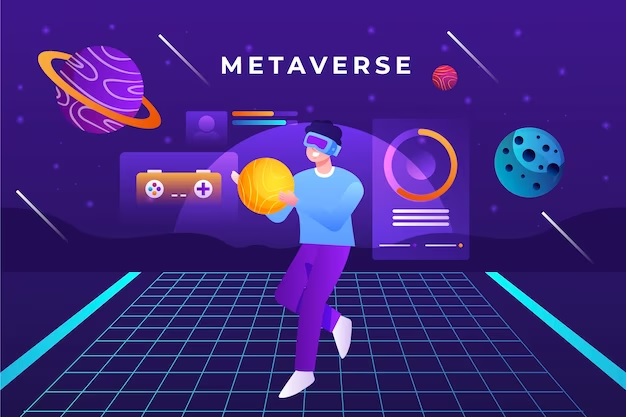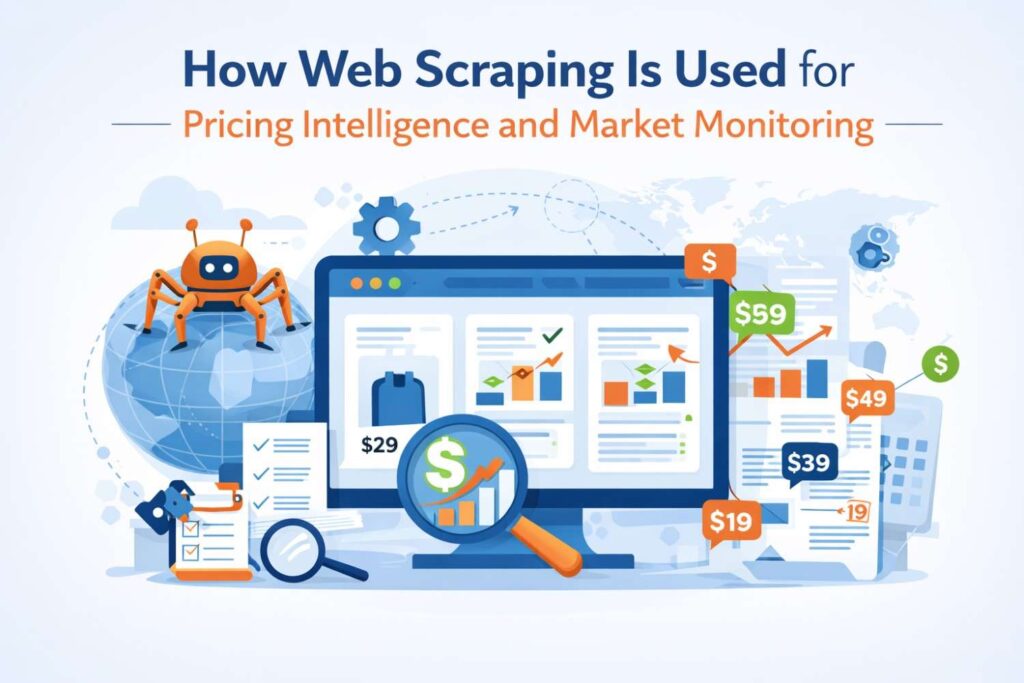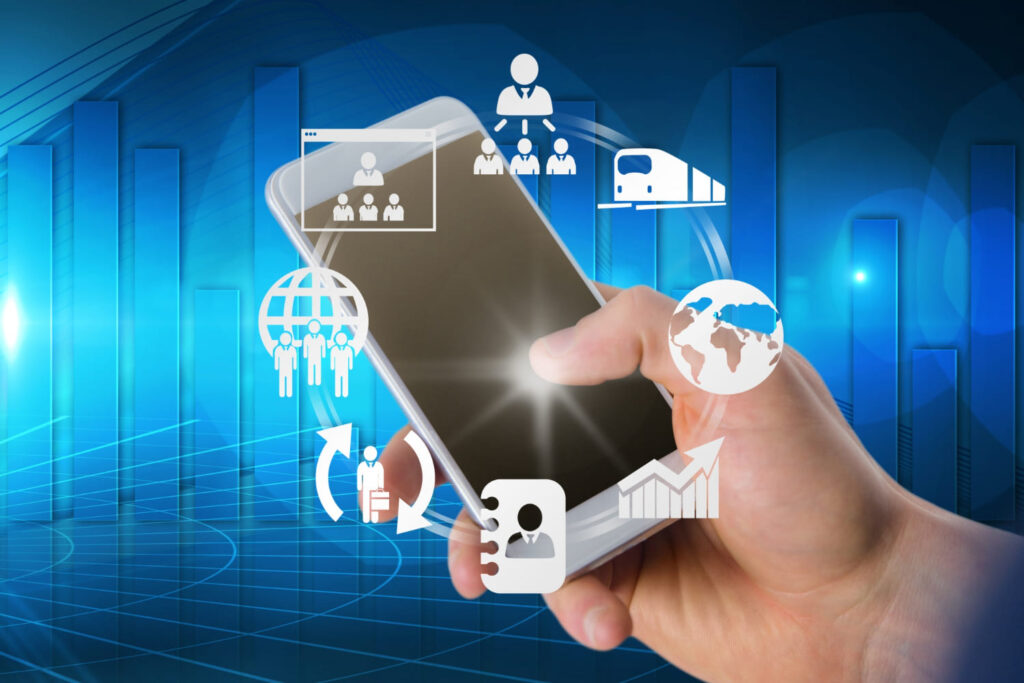The Development of the Metaverse: Finding Real Business Opportunities


News of the metaverse can either be nauseating or exciting. On one hand, futurists look forward to a more immersive and connected future. On the other hand, opponents warn of dangerous investments and useless technologies.
While there is a great deal of debate in the metaverse for companies, there is a treasure of opportunity in the expertise that surrounds it. If business owners invest their resources and time wisely, they may find themselves ready and prepared for that future. If they fall behind or plan poorly, they risk losing their superiority in the market.
To be successful in the virtual market, it is important to partner with a professional metaverse company.
Real-World Market leaders and Metaverse Applications
Business leaders need to understand how sectors are using metaverse technologies in the actual world to understand the niche more deeply and get ideas. Let’s go over a few instances.
- Entertainment
When you hear the words entertainment and metaverse, you likely are thinking of gaming. However, it’s vital not to get confused. There’s social VR, and then there’s VR gaming. These can overlap. Remember that the metaverse is restricted by its immersive connectivity.
Metaverse game development services provide comprehensive solutions, ensuring the creation of top-quality gaming experiences.
A mainly offline game like Beat Saber doesn’t count as a metaverse game. In 2018, a digital concert by Marshmello involved millions of individuals in the video game Fortnite. This served as a wake-up call for many that immersive, large-scale virtual events are very much real, even if they aren’t held in VR spaces.
Metaverse game development and virtual event venues have enormous potential for ticketing and monetization and can be huge parts of marketing campaigns for actual world concerts.
- Real Estate and Virtual Real Estate
There are two edges to real estate use cases of metaverse technologies: virtual real estate and real estate in the real world.
REAL-WORLD REAL ESTATE
A leading metaverse company, Apple was poised for victory in the wake of Meta’s huge investments. One of their potent tools is the AR technologies and 3D scanning they’ve developed for mobile devices, mainly the LiDAR sensor found on current generations of the iPad and iPhone.
VIRTUAL REAL ESTATE
When associated with digital assets, digital real estate is more parallel to a digital art or domain name. Some investors are willing to pay huge amounts of money for digital art, and the same is seen with digital real estate.
The growing value of virtual assets on Decentraland, a leading metaverse company, makes it an attractive option for investors. This change made it successful for investors thanks to the platform’s decentralized model, allowing digital deeds to land and be stored in the blockchain in its place of in a central database.
- Sales and Marketing
Another application that is seeing achievement getting into the metaverse is advertising. One of the major rewards of connective and immersive spaces is that they allow individuals to engage with services and products from home with higher quality than they might from their company or smartphone.
The earlier instance of real estate demonstrated how real estate agents can use 3D models of their possessions for advertising. There have also been a number of associations between business and metaverse companies that stir up buzz about promotions and branding and help raise awareness.
For instance, Target connected with creators in Meta’s Horizon Worlds to produce a Goth Target for Halloween, enthused by the actual world Target in Chicago, which is famous for its uncommon iron exterior. The project was matching with a line of connected products in a movement called “the goth side of Target.”
In addition to advertising, there are more straightforward ways that immersive technologies can be used to grow sales. For instance, Selfridges associated with Pokémon and Charli Cohen to create a crossover sales event where consumers could buy both real-world fashion and the virtual world.
- Healthcare
There are two vital uses for immersive metaverse technologies in the healthcare sector right now: education and telehealth.
TELEHEALTH
For most healthcare suppliers, VR isn’t usually necessary for telehealth to take place. For discussions and consultations with clients, usually over the phone or via video chat, communication will suffice.
However, there are some examples where more immersive technologies can be beneficial in ways you may not expect. The same hardware that is used to track the movements of the eyes and a person’s body can be used for diagnosis.
Eye actions can be used to distinguish issues like glaucoma. Similar eye-tracking software and hardware can be used for ‘neurological markers’ for analysis of illnesses like Alzheimer’s.
In March of 2022, iMining Technologies bought digital land on Decentraland, a qualified metaverse company to launch the world’s primary metaverse drugstore.
The digital location aimed to help get prescription-based medications shipped to their homes and help patients with medication reminders. They also presented online consultations with a certified pharmacist at the digital location.
EDUCATION
Immersive training with AR and VR technologies allows students and doctors to perform surgeries. This is likely not only for educating new medical experts but also to prepare qualified doctors for diverse surgeries by using virtual twins of organs.
This allows surgeons to understand better how a procedure may put a patient in danger before surgery.
- Manufacturing
Honeywell is using metaverse technologies to train employees with its IFS (Immersive Field Simulator). Employees can train in mixed or virtual reality with a simulated version of a physical, real manufacturing site. This is done using virtual twin technology, which can precisely replicate the plant in the actual world.
With the facility to simulate manufacturing centers, Honeywell’s system can prepare supervisors and workers for machine disasters and other issues that need to be modified.
- Online Education
Immersive AR and VR have a number of advantages for remote education for customers and businesses alike. Teaching in 3D has different freedoms that standard education does not. For instance, teaching concepts in 3D such as studying architectural structures, the makeup of chemical compounds, and more.
Metaverse experiences like these also aid in breaking down barriers to entry for education, allowing individuals from around the world to learn and study together.
Axon Park is a platform that allows entire campuses and clients to create virtual courses. In one instance, Axon Park created a VR PPE training simulant to assist in teaching healthcare suppliers how to prevent the spread of COVID-19 appropriately.
- Finance
Metaverse is built on a virtual economy that requires efficient financial systems. This is a growth point both for fintech startups that want to choose promising development paths and standard financial companies that want to scale online.
For instance, opening a digital location is an accessibility and public relations option for financial institutions like banks. That’s precisely what JP Morgan did on Decentraland, a metaverse company opening their Onyx virtual lounge.
It advocates that in the near future, it will be possible to use standard banking solutions online in immersive worlds. For Decentraland, in specific and other platforms fixated on blockchain-based real estate, banks may provide financing options like mortgages and loans.
Wrapping up
The metaverse, powered by advanced technologies, can make our world an exciting place. Immersive applications are now being used in different sectors like marketing, manufacturing, and retail.
However, the problem of whether consumers will trust the metaverse is still up in the air. To counter this, marketers will need to work hard to provide useful and compelling metaverse applications for users.
Another option companies have is to offer decentralization options to consumers. This places less of control on the companies and gives more power to the consumers to trade and own what they would like.
That’s where blockchain technology comes into the picture. The Internet is about to get far more decentralized, accessible, and immersive than it ever has been before. It’s up to you to choose how you’ll approach that future.












